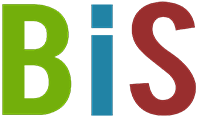Community Resource Centre
Almost everything is stored in the BIS Google Drive. As a BIS Parent / Guardian, your google authenticated email address will be added to the corresponding access.
If you click on any of the below links and receive a notice that you’re not authorised to view please confirm you are logged in to your google account on the computer you’re trying to access documents from (e.g. the gmail address you gave the school).
How do I find what I’m looking for?
Please use the advanced filters to the right of this page (if you are on mobile, they’ll be at the bottom of this page). Selecting a category, basecamp or team will refresh this list to display only resources from those sections.
Literacy Tools: PM Readers
Teachers have your sign in details. Read books online with PM eCollection. Record your voice while you read the book - then your basecamp teacher can hear how you are going!
Literacy Tools: SPELD Decodable Readers
The SPELD SA Phonic Books use a sequence of synthetic phonics to progress children through a levelled reader program. Different versions of the same book can be used online, downloaded onto a computer, iPad, tablet or printed as a book.
Literacy Tools: Soundwaves
Your teachers have your Basecamp access codes.
Integral Teacher, Integral Students, Integral Classroom: Applying Integral Theory to Education
Where, indeed, can one to learn how to think and perceive differently? Certainly, education in some of its contemporary "alternative" expressions offers students ways to "stray afield" of their own embedded-ness in particular modes of being and knowing. These alternative approaches provide important ways to transcend the prison of a life not reflected upon. Yet education in its conventional manifestations also cultivates important capacities for thinking and perceiving anew.
Kohlberg’s Theory of Moral Development
Kohlberg's theory of moral development is a theory that focuses on how children develop morality and moral reasoning. Kohlberg's theory suggests that moral development occurs in a series of six stages. The theory also suggests that moral logic is primarily focused on seeking and maintaining justice.
Found 40 Results
Page 3 of 4



